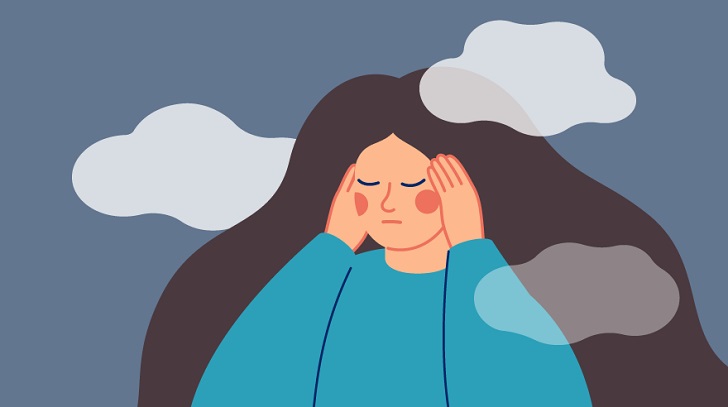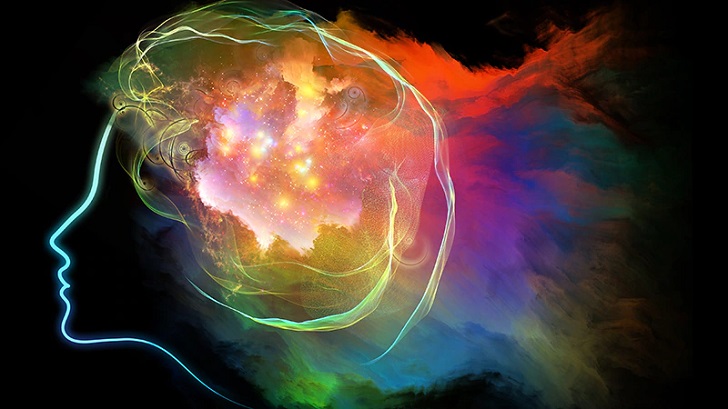You may be able to recall your younger years when you used your wits to outsmart someone or were able to immediately name your favorite actress, restaurant, or fourth-grade teacher when asked. However, as you get older, your brain may become less agile. Add a poor diet, mental overload from the never-ending news cycle, stress, or downright anxiety, and you may find yourself struggling to find the right words or remember the name of that guy who was on that show about that thing.
This is known as "brain fog," which can be frightening, causing a mental cloud of anxiety that causes you to frantically search online for answers. The good news is that it is usually only temporary, and you can get your brain back on track with the right lifestyle changes. We spoke with experts to find out what you can do to eliminate brain fog and improve your mental clarity. Here are a few ways to eliminate brain fog:
Boost your thinking abilities

Sharp Healthcare/ Pinterest | Brain fog is characterized by confusion, forgetfulness, and a lack of focus
Boosting your thinking abilities: solving brain puzzles or volunteering yourself for new activities can be the first step. It’s also good to note that when trying to play games, make sure you choose something that needs to increase in challenge to avoid keeping your brain running on autopilot. Games like Scrabble can bring out the competitive spirit in individuals and operate to train your mind to focus and enrich your vocabulary. In addition, you can also try new creative hobbies like creative writing, painting, photography, and playing music or learning a musical instrument.
Get Sun and Vitamin D3
Vitamin D significantly impacts brain function by activating genes that support the production and release of dopamine and serotonin. Despite this, most people are deficient (an estimated one billion people worldwide), and a lack of Vitamin D can cause chronic brain fog, low energy, poor memory, and depression. It's a worthwhile idea to get yourself checked and supplement your diet if there is a dietary deficiency.
Vitamin D levels greater than 40 ng/mL (100 nmol/L) lower the risk of cognitive impairment, while low vitamin D levels increase the risk of dementia. Because they reduce inflammation, using a Vitamin D lamp and getting enough sunlight can also help with brain fog.

Medscape/ Pinterest | "Brain fog” isn't a medical condition
Follow a healthy diet
Food can be used as medicine and can naturally treat certain conditions. Increase your consumption of fruits, protein, healthy fats, and vegetables. Make sure your diet is full of healthy, whole foods. Berries, green, leafy vegetables, and foods high in omega-3 fatty acids, such as chia seeds, walnuts, and salmon, may be particularly beneficial to brain health.
Watch out for sugar

Healthline/ Pinterest | “Brain fog” is a common after-effect of COVID-19, affecting some 67 percent of 156 patients
Your brain is fueled by glucose (sugar), but refined carbohydrates such as sugar and high fructose corn syrup are inefficient fuel sources. Your brain receives an excessive amount of glucose, followed by an inadequate amount. Brain fog, mood swings, irritability, tiredness, mental confusion, and impaired judgment are all symptoms of low glucose in the brain. On the other hand, high blood glucose levels cause insulin resistance and diabetes, both of which have been linked to Alzheimer's.




